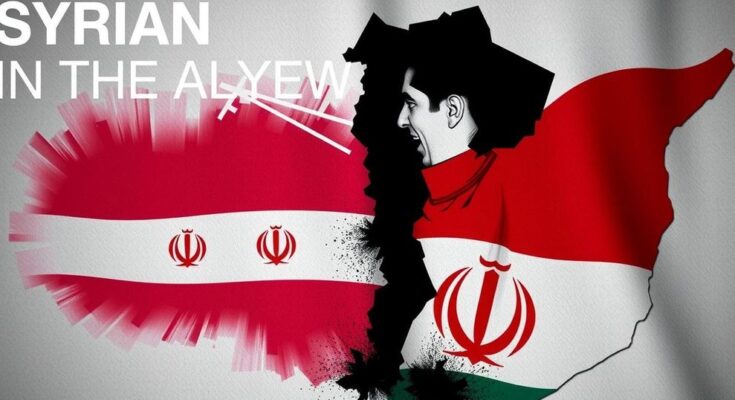The unexpected fall of Bashar al-Assad’s regime in Syria has created a rift within the Iranian establishment, revealing mixed opinions on foreign policy and approaches to securing Iranian interests amidst new realities. Tehran is contemplating its future actions in Syria, balancing between engagement with emerging rebel entities and maintaining proxy capabilities, while repercussions may also extend to Iranian influence in Lebanon and negotiations around its nuclear program.
The rapid collapse of Bashar al-Assad’s regime in Syria has taken the Iranian establishment by surprise, as they anticipated a stronger defense from the Syrian army. Iranian sources indicated that the withdrawal of Hezbollah fighters, who shifted focus to the conflict with Israel, vacated critical positions that the Syrian army failed to reoccupy. Amidst ongoing Israeli airstrikes, Iranian officials expressed their inability to protect sacred sites, with media portraying the rebels in a less hostile light as the situation deteriorated. Mixed reactions emerged within Iran regarding the government’s handling of the crisis, with some factions expressing frustration over perceived inadequacies in supporting Assad. This division has led to discussions around Iran’s future role in Syria, with perspectives ranging from continued influence through dialogue with rebel groups to strengthening proxies that espouse anti-Israeli sentiments. Analysts suggest that the evolving landscape in Syria may also have broader implications for Hezbollah’s position in Lebanon and Iran’s strategic posture in the region, particularly concerning its nuclear program.
The fall of Bashar al-Assad’s government in Syria is a significant geopolitical development that has ramifications for Iranian foreign policy. Iran has historically backed Assad as part of its broader strategy to counter extremist groups and maintain a foothold in the Levant. The change in control may lead to shifts in Iran’s strategy, as Iranian leaders ponder their next moves in response to a potentially hostile new regime. The internal divisions within Iran regarding the approach to this new reality further complicate the situation, highlighting differing beliefs on how to best secure Iranian interests amidst regional turmoil.
The Iranian establishment is experiencing internal conflict regarding its response to the collapse of Assad’s regime in Syria. While some factions demand stronger support for Assad, others view the developments as an opportunity to redefine Iran’s foreign policy, potentially moving away from a purely sectarian approach. The implications of this shift may extend beyond Syria, potentially affecting Iran’s influence in Lebanon and its contentious relationship with Israel and the West. The evolving situation underscores the complexities facing Tehran as it navigates the new regional landscape.
Original Source: www.middleeasteye.net




